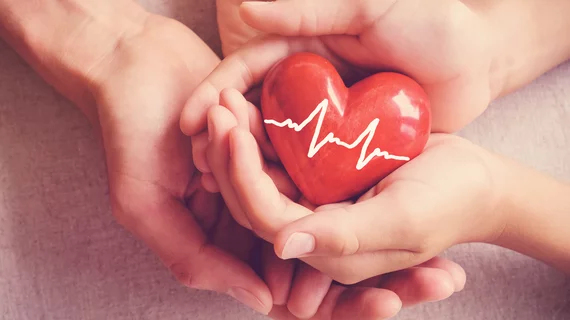Mount Sinai launches ultra-specialized CHD center
Mount Sinai has launched an Adult Congenital Heart Disease Center (ACHD Center) at Mount Sinai Heart in New York in an attempt to streamline CHD care throughout the life cycle.
Around 1.4 million adults in the U.S. live with congenital heart disease, according to a release from Mount Sinai—around 1 in every 100 babies are born with some form of the condition—but 90% of them aren’t getting the care they need. The new ACHD Center will provide “comprehensive care for adults with all forms of CHD” and will employ ACHD specialists, hepatologists, nutritionists, cardiac imagers, mental health professionals and social workers under one roof.
“Our center will leverage the expertise of Mount Sinai Heart while providing seamless and expert care to patients born with cardiovascular malformations who are surviving well into adulthood and require a constellation of well-coordinated, expert services,” Valentin Fuster, MD, PhD, director of Mount Sinai Heart and physician-in-chief at Mount Sinai Hospital, said in a statement.
Ali N. Zaidi, MD, has been named as director of the new ACHD Center and is the only physician in New York State trained and board-certified in adult CHD, adult cardiology, pediatric cardiology, internal medicine and pediatrics. He’s also one of the only doctors in the country who has five boards.
According to Mount Sinai, the ACHD Center will feature several specialized areas, like the Fontan Clinic, which will focus exclusively on patients with single-ventricle Fontan physiology.
“Our adult single-ventricle survivors represent an unusual and extremely complex cohort of patients whom we believe will benefit from the care of a highly coordinated team in a clinic created explicitly for their care,” Zaidi said in the release. “The Fontan procedure refers to the final repair in a multi-stage open-heart surgery to rebuild the heart and reroute blood flow. While single-ventricle survivors are now living longer lives as a result of improvements to Fontan palliation, it is common for them to experience long-term effects of poor blood circulation to the organ systems.
“To optimize their health, we have designed a program to ensure constant monitoring, expert coordination across multiple specialty lines and a careful transition of care from adolescence to adulthood that is thoughtfully managed.”
The Fontan Clinic is just one of a handful of centers in the U.S. that offer a long-term survivorship program for single-ventricle patients. Other features of the Mount Sinai ACHD Center include:
- Reproductive health, fertility management and high-risk pregnancy care for women with CHD
- Transitional care for teens with CHD
- Neurocognitive care for adults with CHD
- Diagnostics including full cardiopulmonary exercise testing, right heart catheterization with vasoreactivity testing, advanced cardiovascular imaging, transcatheter congenital structural interventions and dedicated adult congenital heart surgery
Learn more about the new center here.

